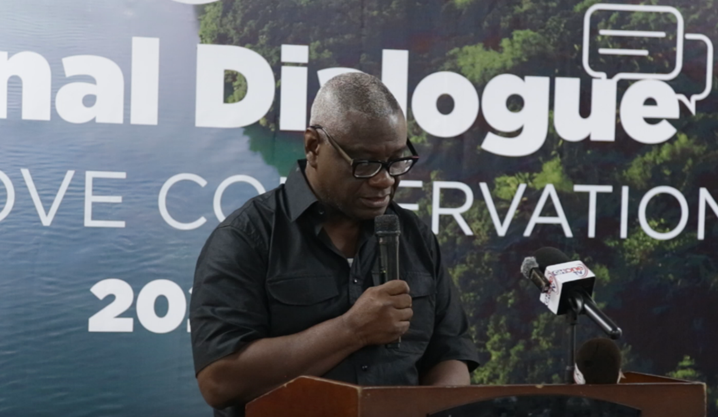
Conservationists are urging swift national policies with stricter sanctions against those destroying mangroves.
They warned that their loss threatens fisheries, food security, and coastal livelihoods. The call was made at the National Dialogue on Mangrove Conservation, organised by Hen Mpoano and funding partners, funded by the Norwegian Agency for Development Cooperation (Norad).
Mangroves are among the planet’s most underrated ecosystems, yet vital to both nature and people. They act as natural barriers against storm surges, tidal waves, and erosion; store up to four times more carbon per hectare than tropical rainforests; and provide breeding grounds for fish, crabs, shrimps, and birds.

In Ghana’s Volta, Central, and Western Regions, mangroves face mounting threats from urban expansion, over-harvesting for fish smoking, salt production, and encroaching illegal mining. Degraded areas such as Ada, Keta, and the Ankobra estuary have already worsened erosion and depleted fish stocks, hitting coastal livelihoods hard.
Hen Mpoano Director Kofi Agbogah pointed to urbanisation and poorly managed eco-tourism as growing pressures. “Tourists come for birdwatching and relaxation, but often leave behind plastic waste that pollutes breeding grounds for fish. The impact is clear, this action leads to diminishing fish stocks,” he said.
Deputy Director of Hen Mpoano, Stephen Kankam, also revealed that Ghana has lost over 30% of its mangrove cover in the last two decades.

He warned that illegal mining is accelerating the decline by increasing water turbidity and poisoning mangrove roots with mercury, killing both the trees and aquatic life.
Admitting that urgent action is overdue, Wetlands Operations Manager at the Wildlife Division of the Forestry Commission, Eric Atta Kusi, pledged stronger safeguards.
“Our general wetlands plan has expired and needs review. In the meantime, we are developing a dedicated national policy on mangrove restoration and conservation in collaboration with NGOs, ESOs, and other key actors”, he added.